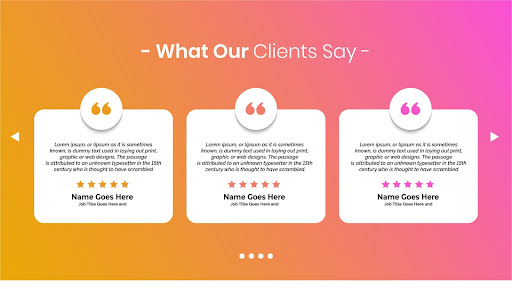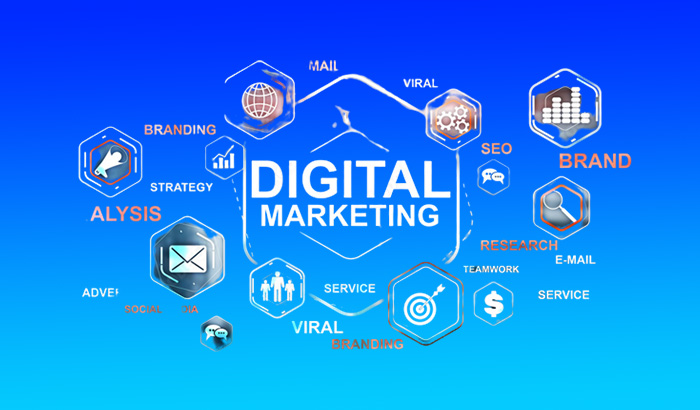In today’s digital marketing age, having a company website is crucial for any business hoping to stay competitive and grow its online presence. However, simply having a website is not enough – ensuring that your website is optimized for user experience and engagement is vital. One way to do this is by including certain pages that are essential to any website.
From regularly updated blog pages to comprehensive FAQ pages, we will examine the benefits of these essential website pages and how they can help enhance your website’s usability, attract new audiences, and ultimately drive your business forward.
Table of Contents
ToggleThe 7 Website Pages You Need
1. HOME Page: Your home page should include navigation, important information, and calls to action. It also serves as your first impression for visitors.
- Navigation and Orientation: The homepage is a central hub, guiding visitors through your website. It overviews the site’s structure and helps users orient themselves by showcasing key sections and navigation menus. The homepage lets visitors quickly find the information they seek by presenting a clear and organized layout.
- First Impression and Branding: The homepage is often the first page visitors encounter when they arrive at your website. It is an opportunity to make a positive and memorable first impression. You can convey your brand’s personality, values, and unique selling points through visually appealing design elements, compelling copy, and engaging multimedia. A well-crafted homepage builds trust, and credibility, and establishes your brand identity in the minds of visitors.
- Important Information and Calls to Action: The homepage is a gateway to your website’s most important content and features. It lets you showcase key information about your business. Additionally, the homepage is an ideal place to include prominent calls to action encouraging visitors to take desired actions, such as purchasing, subscribing to a newsletter, or contacting you for more information.

2. ABOUT US page: Having an About Us page on your website is important for building trust and credibility and showcasing your expertise, among other things.
- Building Trust and Credibility: An About Us page provides an opportunity to introduce your company or brand to visitors, allowing them to learn more about who you are and what you do. You can establish trust and credibility with your audience by sharing information about your company’s history, mission, values, and team members. Visitors want to know the people behind the website, and an About Us page humanizes your brand and helps build a connection.
- Showcasing Expertise and Experience: The About Us page is a place to highlight your company’s expertise, experience, and any accolades or certifications that set you apart from competitors. The About Us page enables you to demonstrate why you are qualified to provide your products or services. Sharing success stories, case studies, or client testimonials on this page can further enhance your credibility and showcase your track record.
- Personalizing Your Brand: An About Us page allows you to inject personality and character into your brand by sharing the story behind your company. You can share the inspiration behind your brand, the challenges you’ve faced, and the passion that drives you.
3. PRODUCTS/SERVICES page: Having a dedicated products/services page on your website offers several benefits, including:
- Providing a Clear Overview: A products/services page allows you to present a comprehensive and organized overview of the products or services your business offers. This helps visitors quickly understand what you provide and can lead to better engagement and conversions.
- Showcasing your Offerings: You can include descriptions, images, videos, pricing information, and any unique features or benefits associated with each offering. This allows potential customers to make informed decisions and increases their chances of choosing your offerings over competitors.
- Encouraging Action: A well-designed products/services page can guide visitors toward taking action, such as making a purchase, requesting a quote, or contacting your business for more information. You can increase conversion rates and generate more leads by including clear call-to-action buttons and providing relevant details.
4. CONTACT US page: A contact us page on your website is vital for several reasons, like facilitating communication and providing customer support. Let’s take a closer look:
- Facilitating Communication: The primary purpose of a Contact Us page is to provide a means for visitors to get in touch with your business. Including a contact form or displaying your contact information makes it easy for potential customers, partners, or other interested parties to contact you and initiate communication.
- Generating Leads and Opportunities: A Contact Us page can be a valuable lead generation tool. Encouraging visitors to contact you creates opportunities for new business, collaborations, partnerships, etc. Every interaction initiated through the Contact Us page has the potential to convert into a valuable opportunity.
- Providing Customer Support: By offering a dedicated channel for support inquiries, you demonstrate responsiveness and commitment to customer satisfaction. This can help improve customer relationships, resolve issues efficiently, and enhance customer experience.
- Building Trust and Accessibility: Prominently displaying your contact information, including your physical address (if applicable), creates transparency and accessibility. Visitors feel more confident doing business with a company that is easily reachable and willing to engage in two-way communication.
- Capturing Visitor Information: When you include a contact form on your Contact Us page, you can capture valuable visitor information. By requesting relevant details such as name, email address, or phone number, you can collect leads and build a database for future marketing efforts.
- Meeting Compliance Requirements: Depending on your location and industry, specific laws and regulations may require you to provide a way for visitors to contact you, such as in the case of data protection and privacy regulations. Having a Contact Us page ensures compliance with these requirements.

5. TESTIMONIALS/REVIEWS page: Having a testimonials/reviews page on your website offers several benefits:
- Building Trust and Credibility: Like a Contact Us page builds trust, so does a testimonials and reviews page. Testimonials and reviews from satisfied customers can significantly enhance your business’s credibility and build trust with potential customers. By showcasing positive feedback and experiences, you demonstrate that your products or services have delivered value and customer satisfaction. This can help potential customers feel more confident choosing your business over competitors.
- Social Proof: Testimonials and reviews serve as social proof, a powerful psychological influence. When visitors see that others have had positive experiences with your business, it creates a sense of reassurance and decreases the perceived risk of making a purchase or working with you. People are more likely to trust the opinions of others who have already tried your offerings.
- Influencing Buying Decisions: Testimonials and reviews can directly influence potential customers’ buying decisions. Positive testimonials can provide insights into your products’ benefits, value, and quality. They can address common objections or concerns and provide reassurance to hesitant buyers.
- Engaging Website Content: Testimonials and reviews add valuable content to your website. They provide unique perspectives and authentic voices that can engage and resonate with visitors. Well-crafted testimonials can tell compelling stories, evoke emotions, and connect your business with potential customers. This can make your website more exciting and memorable.
- Enhancing SEO and Website Visibility: Including testimonials and reviews on your website can benefit your search engine optimization efforts. Testimonials often contain relevant keywords and phrases related to your business, products, or services, which can contribute to better search rankings.
- Addressing Concerns and Objections: Testimonials and reviews allow you to address specific concerns or objections that potential customers may have. You can alleviate doubts and build confidence in your offerings by featuring testimonials highlighting how your business resolves common issues or meets specific needs. This can be particularly useful for products or services with a longer sales cycle or higher price point.
6. FAQs page: Your website should have a Frequently Asked Questions page for multiple reasons. Not only can it improve your customer’s overall experience – which you always want! – but it can also reduce your customer support load. Let’s take a look at why:
- Improved Customer Experience: An FAQ page enhances the user experience by providing quick access to answers to common questions or concerns. Instead of browsing multiple pages or contacting customer support, visitors can instantly find the information they need, saving time and effort.
- Reduced Customer Support Load: By addressing frequently asked questions on your website, an FAQ page can significantly reduce the number of inquiries or support tickets your employees need to handle. This lets your team focus on more complex or specific customer issues, improving efficiency and productivity.
- Time and Cost Savings: When customers can find answers on their own through an FAQ page, it reduces the need for one-on-one interactions and support resources. This saves time and costs for personalized assistance, such as customer support staffing or live chat services.
- Opportunity for Cross-Selling or Up-Selling: In addition to addressing common queries, an FAQ page can also be an opportunity to showcase related products or services. By strategically including information about complementary offerings, you can create upselling or cross-selling opportunities and drive additional sales.

7. BLOG page: Including a blog page on your website offers numerous benefits and is highly recommended for several reasons:
- Increased Website Traffic: A regularly updated blog can drive organic traffic to your website. Creating informative and engaging content that aligns with your target audience’s interests and needs can attract more visitors through search engines, social media, and other referral channels. This can increase your website’s visibility and attract new potential customers.
- Improved SEO: Just like a testimonials page can help with SEO, so can a page full of blogs. Publishing quality content with relevant keywords and optimizing it for search engines can help your website rank higher in search results. This can lead to more visibility, increased organic traffic, and a broader reach for your business.
- Establishing Thought Leadership: A blog page allows you to showcase your expertise, knowledge, and industry insights. By sharing valuable and well-researched content, you can position yourself and your business as a trusted authority. This helps build credibility and trust among your audience, increasing brand reputation and customer loyalty.
- Engaging and Educating Your Audience: A blog provides a platform to engage with your audience and educate them about your products, services, or industry. You can address common challenges, provide tips and best practices, offer how-to guides, share case studies, and discuss industry trends. This not only keeps your audience informed but also positions you as a reliable source of information.
- Customer Interaction and Engagement: Blogging encourages interaction and engagement with your audience. You can enable comments on your blog posts, allowing readers to ask questions, provide feedback, or share their experiences. This fosters a sense of community and can lead to valuable conversations, increased brand loyalty, and better relationships with your audience.
- Content for Social Media and Email Marketing: Blog posts can serve as valuable content for your social media channels and email newsletters. Sharing blog content across your social media platforms allows you to drive traffic back to your website and reach a wider audience. Additionally, featuring blog posts in your email newsletters provides valuable information to your subscribers and drives traffic to your website.
- Long-term Value and Evergreen Content: Well-written blog posts can have long-term value and continue to drive traffic to your website for months or even years. Evergreen content, which remains relevant and valuable over time, can continue to attract new visitors and serve as a resource for your audience. This makes blogging a worthwhile investment in creating valuable content that generates long-term benefits.
Create or Upgrade Your Website With Revity Marketing
Ready to take your website page to the next level? A digital marketing agency is just what you need. Contact Revity Marketing today and let our team of experts create or upgrade your site pages. We have the experience and know-how to design a website that showcases your brand, drives traffic, engages your audience, and helps you achieve your business goals. Call us at 801.877.3061, or schedule an appointment through our website to get started today and see what you can achieve with digital marketing!





